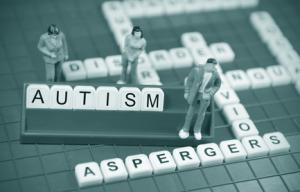Study gives hope for new treatments for both conditions
By Ian Birch
A study at a university in Texas in America is underway to research the similarities between social impairment in schizophrenia and autism: in the hope of finding new treatments for both conditions.
 Although autism and schizophrenia are distinct conditions categorised differently under the American DSM-IV and World Health Organisation ICD-10 criteria, there are thought to be overlaps in certain areas which are currently poorly understood.
Although autism and schizophrenia are distinct conditions categorised differently under the American DSM-IV and World Health Organisation ICD-10 criteria, there are thought to be overlaps in certain areas which are currently poorly understood.
According to the study, many young people with autism spectrum disorders have been thought to have childhood schizophrenia: sometimes leading to misdiagnosis. Similarly, it is possible for people with schizophrenia to test positive for autism in self-tests undertaken on the internet.
According to Dr. Noah Sasson, assistant professor in the UT Dallas School of Behavioural and Brain Science, there are clear distinctions between autism and schizophrenia, but an overlapping problem is recognising social clues. He says that both groups can have difficulties recognising emotions in others and picking up on subtle clues in interactions, adding:
“Because the two disorders are different in so many ways, it is likely that the basis for their social impairments differs as well. Understanding these differences will be key for developing effective treatments. What works well for individuals with ASD might be very different than those with schizophrenia.”
“People with schizophrenia have a much higher likelihood than the general population to attribute ill will to others, and this is likely tied to their delusions,” he said. “On the other hand, people with autism are more ‘socially cynical.’ They seem to be exhibiting fairly realistic responses to people as a result of the challenges they’ve faced in life because of their condition.”
By differentiating between schizophrenia and autism, and by examining how patients react in social settings, Sasson said he hopes researchers can develop new ways to counteract the negative social experiences of patients. This could result in a profound improvement in their ability to navigate life successfully.





